Purchasing a home is a significant life milestone, often accompanied by excitement and anticipation.
Yet, it can also be a daunting endeavor, especially for first-time buyers.
The multitude of questions that arise during this process is entirely natural.
In this guide, we’ll delve into the most common home buyer questions, providing detailed answers to help you confidently navigate the path to homeownership.
From grasping the nuances of mortgages to evaluating a potential home’s condition, we leave no stone unturned in equipping you for this life-altering decision.
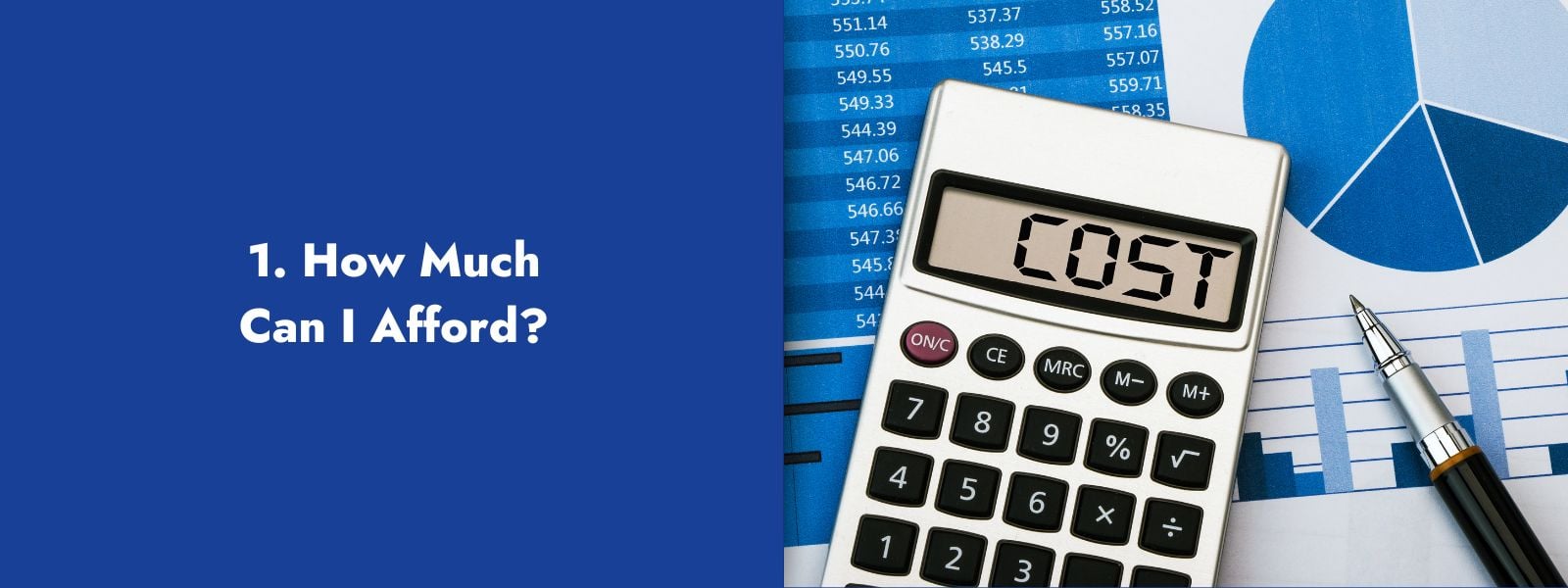
1. How Much Can I Afford?
Determining your affordable price range is the pivotal starting point of your homebuying journey. This initial calculation establishes the boundaries of your search, ensuring that you remain within a budget that aligns with your financial capacity.
To calculate how much home you can afford, it’s crucial to take several factors into account. Your annual income, monthly expenses, and current interest rates play pivotal roles. As a general guideline, your monthly housing expenses, including the mortgage, property taxes, and insurance, should not surpass 28% of your gross monthly income.
While this rule provides a basic framework, it’s essential to consider individual circumstances and lifestyle choices when determining your comfort zone for monthly housing costs.
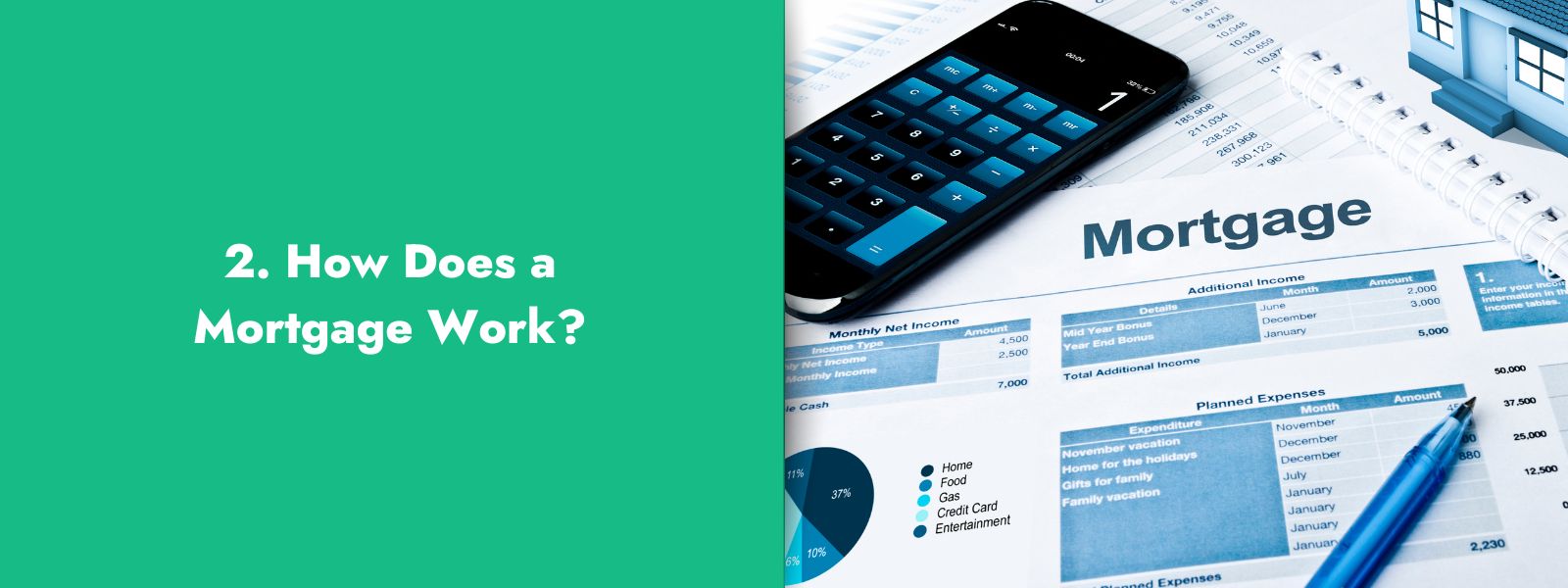
2. How Does a Mortgage Work?
Understanding the inner workings of a mortgage is fundamental to homeownership. A mortgage is essentially a loan that enables you to purchase a home, and it consists of several key components.
The principal is the amount you borrow to buy the home. The interest is the cost you incur for borrowing this money, expressed as a percentage. The term specifies the duration of the loan, typically 15 or 30 years. Each month, you make a mortgage payment that encompasses both principal and interest. Over time, a higher proportion of your payment goes toward the principal, which incrementally increases your home equity.
This process continues until you’ve paid off the entire loan, at which point you own the home outright. Mortgages come in various forms, including fixed-rate and adjustable-rate, each offering distinct advantages depending on your financial goals and risk tolerance.
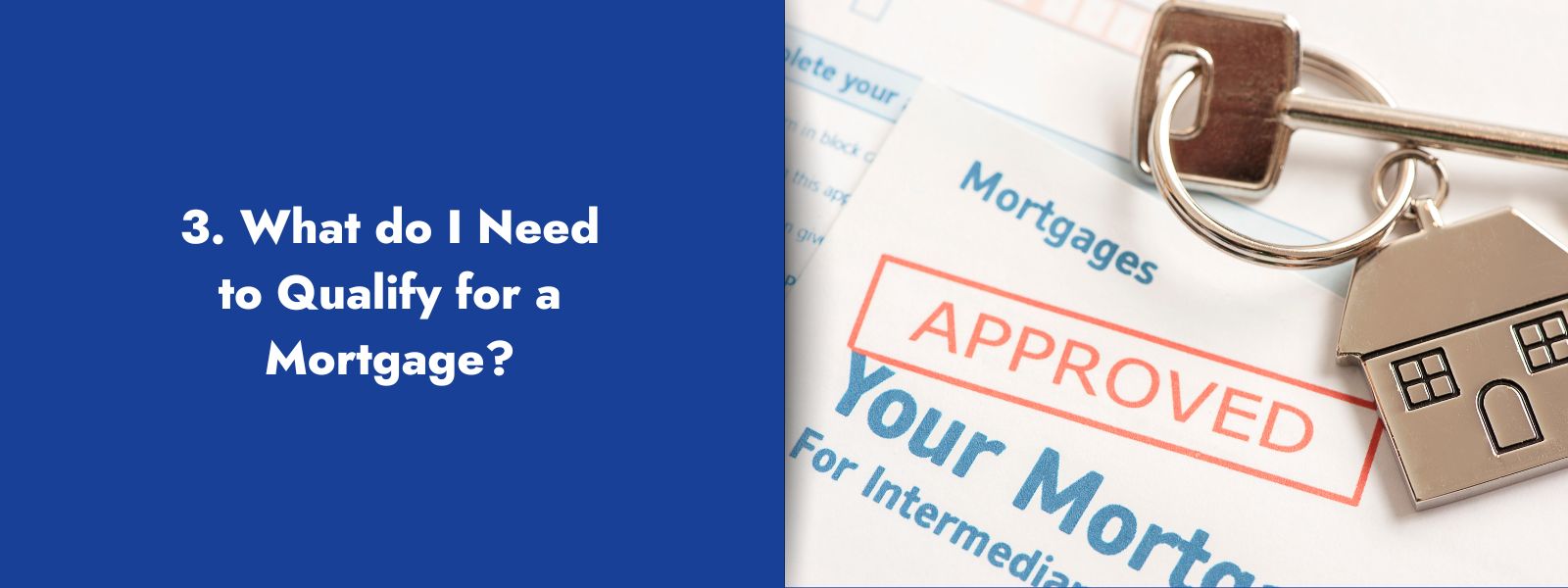
3. What do I Need to Qualify for a Mortgage?
Qualifying for a mortgage hinges on several key factors that lenders consider when evaluating your financial fitness. The following elements hold substantial sway in determining your eligibility:
- Credit score: Lenders assess your creditworthiness using your credit score, which ranges from 300 to 850. While requirements may vary, a FICO score of 620 or higher is generally considered the minimum for conventional loans. However, higher scores often secure better interest rates and terms.
- Employment history: Lenders prefer borrowers with a stable job history, as it demonstrates your ability to make consistent mortgage payments.
- Debt-to-income ratio (DTI): This metric measures your monthly debt payments relative to your gross monthly income. Lenders generally prefer a DTI ratio below 43%, although some programs may accept higher ratios depending on your overall financial situation.
- Down payment amount: The down payment is a percentage of the home’s purchase price that you contribute upfront. While 20% is often recommended to avoid private mortgage insurance (PMI), some loan programs accept as little as 3%. A larger down payment reduces your loan amount and consequently your monthly payments.
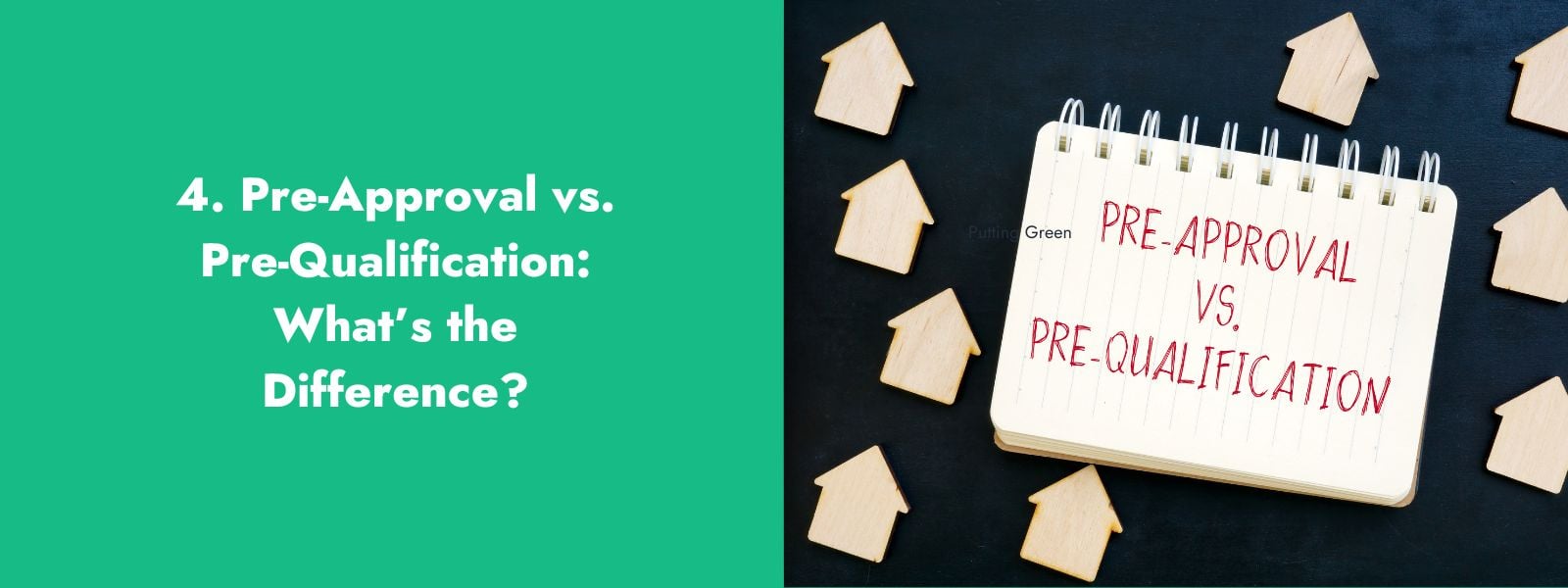
4. Pre-Approval vs. Pre-Qualification: What’s the Difference?
When navigating the mortgage application process, you’ll encounter the terms “pre-qualification” and “pre-approval.” While they might sound similar, they serve different purposes and carry varying degrees of weight in the homebuying process.
- Pre-qualification is a preliminary assessment based on the information you provide to the lender. It offers an estimate of how much you might be eligible to borrow based on your self-reported financial situation. While it provides a general idea, it’s not a guarantee of a loan.
- Pre-approval, on the other hand, involves a more comprehensive evaluation of your financial history, credit score, and other pertinent factors. It results in a conditional commitment from the lender for a specific loan amount, lending significant weight to your negotiations with sellers. A pre-approval letter is a valuable asset in demonstrating your seriousness as a buyer.
Additional Resources:
- Mortgage Pre-Qualification vs. Pre-Approval: What’s the Difference?
- 13 Mortgage Shopping Mistakes to Avoid When Buying a House
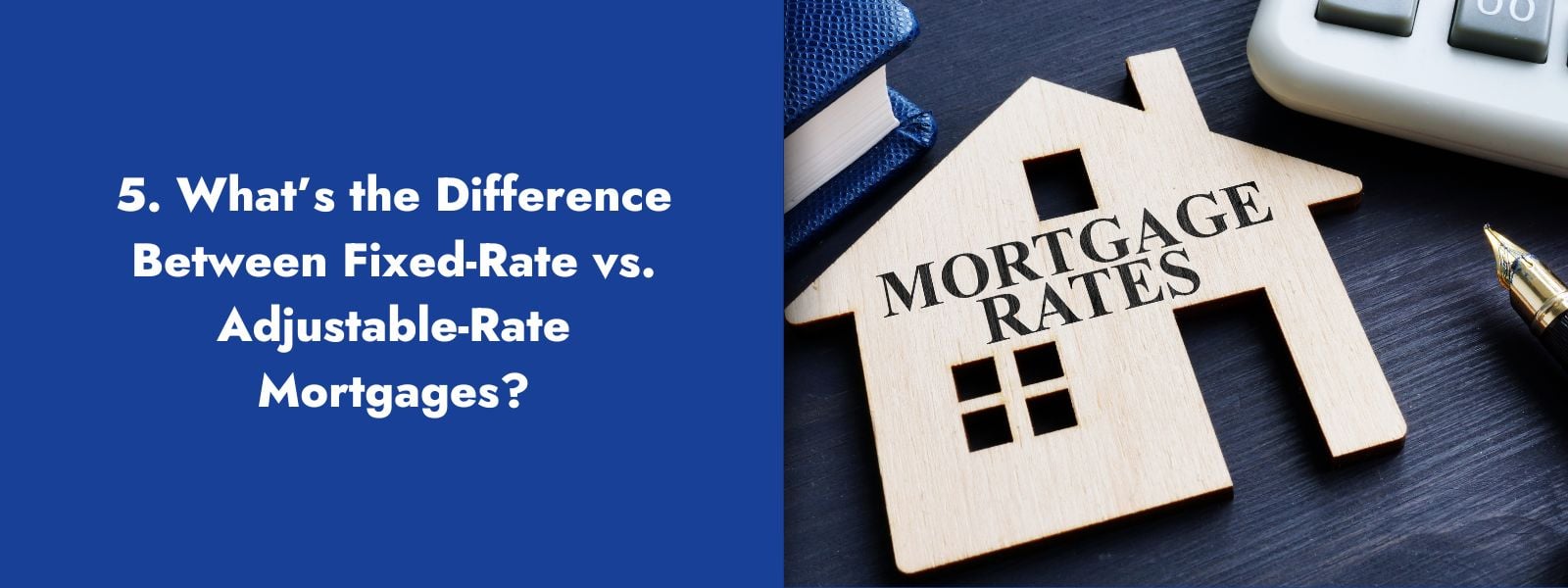
5. What’s the Difference Between Fixed-Rate vs. Adjustable-Rate Mortgages?
Two primary types of mortgages exist: fixed-rate and adjustable-rate mortgages (ARMs). Each comes with its unique characteristics, influencing your decision based on your financial objectives and risk tolerance.
- Fixed-rate mortgage: In a fixed-rate mortgage, the interest rate remains constant throughout the entire loan term, providing predictability and stability in monthly payments. This consistency is particularly advantageous when you want to budget with confidence.
- Adjustable-rate mortgage (ARM): ARMs offer an initial period of lower interest rates, making initial monthly payments more affordable. However, the interest rate fluctuates based on market conditions, introducing an element of uncertainty. ARMs are often chosen by those who plan to stay in their homes for a shorter duration or anticipate a rise in their income.

6. How Do You Choose a Mortgage Lender?
Selecting the right mortgage lender is a pivotal decision in your homebuying journey. Several considerations should guide your choice, ensuring that you secure favorable terms and a smooth lending experience.
- Interest rates and fees: It’s crucial to compare interest rates and fees from multiple lenders to find the most competitive offer. Even a slightly lower interest rate can result in significant savings over the life of your loan.
- Reputation and customer reviews: Researching a lender’s reputation through online reviews and recommendations can offer valuable insights into their service quality and reliability.
- Loan programs offered: Mortgage lenders offer a variety of loan programs, so it’s essential to find one that aligns with your needs and financial goals. Programs may vary in terms of down payment requirements, credit score thresholds, and other criteria.
- Customer service and communication: A lender’s responsiveness, clarity in communication, and ability to address your questions and concerns are vital factors in ensuring a smooth mortgage process.
By thoroughly evaluating these factors, you can make an informed decision when choosing your mortgage lender.

7. What Credit Score Do I Need to Buy a Home?
Your credit score plays a pivotal role in your ability to secure a mortgage and influence the terms you receive. Lenders rely on your credit score to gauge your creditworthiness, and different loan programs may have varying credit score requirements.
According to Nerd Wallet, a FICO credit score of 620 or higher is generally considered the minimum for conventional loans. However, it’s essential to note that the higher your credit score, the more favorable the interest rates and terms you’re likely to receive. For instance, borrowers with a credit score of 760 or above often qualify for the best mortgage rates.
Additionally, FHA loans, a popular choice for first-time buyers, may accept lower credit scores, typically around 580 or higher, with a larger down payment. Keep in mind that lenders may have their own credit score requirements, so it’s essential to consult with potential lenders to understand their specific criteria.
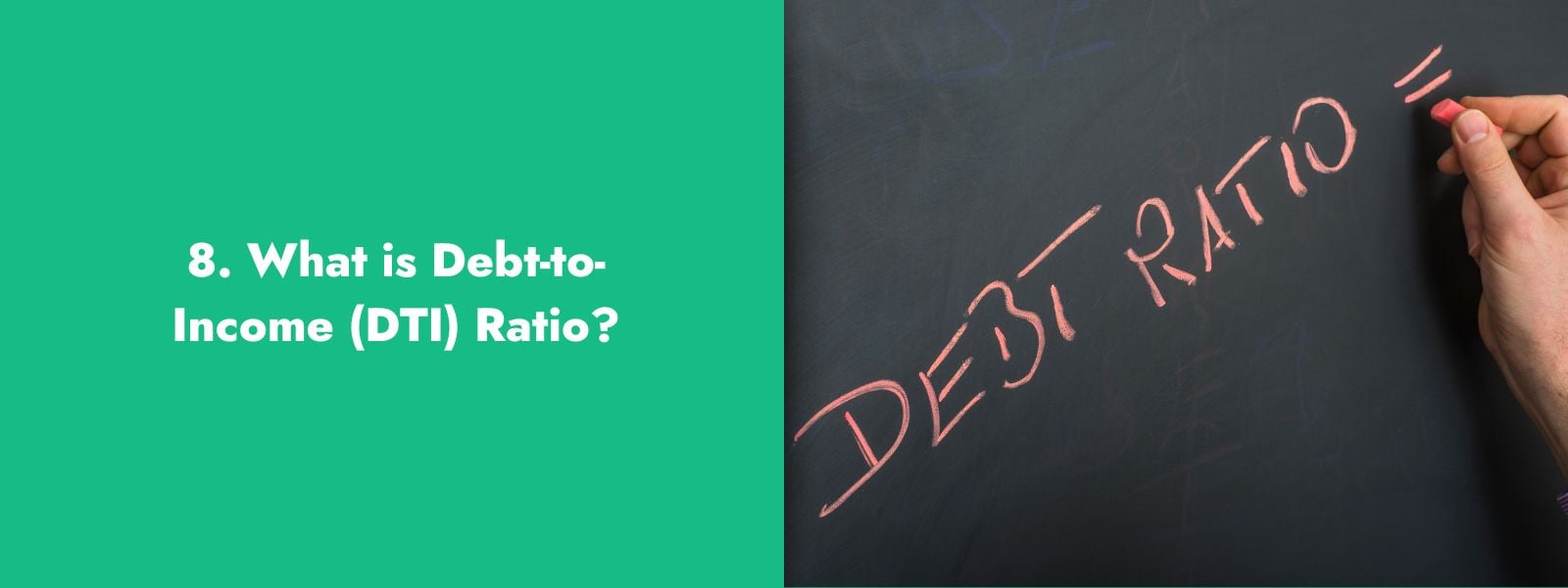
8. What is Debt-to-Income (DTI) Ratio?
Your debt-to-income (DTI) ratio is a critical metric used by lenders to assess your financial fitness for a mortgage. It compares your monthly debt obligations to your gross monthly income and is expressed as a percentage.
Lenders typically prefer borrowers to have a DTI ratio below 43%. This percentage includes all your monthly debt payments, such as credit card minimums, student loan payments, and car loans, in addition to your projected monthly housing expenses (mortgage, property taxes, and insurance).
Maintaining a low DTI ratio is advantageous because it indicates to lenders that you have a manageable level of debt relative to your income, increasing your likelihood of loan approval. However, it’s essential to note that some mortgage programs may accept higher DTI ratios, particularly if other aspects of your financial profile are strong.
Understanding your DTI ratio is crucial, as it directly impacts your mortgage qualification and the loan amount you can secure.
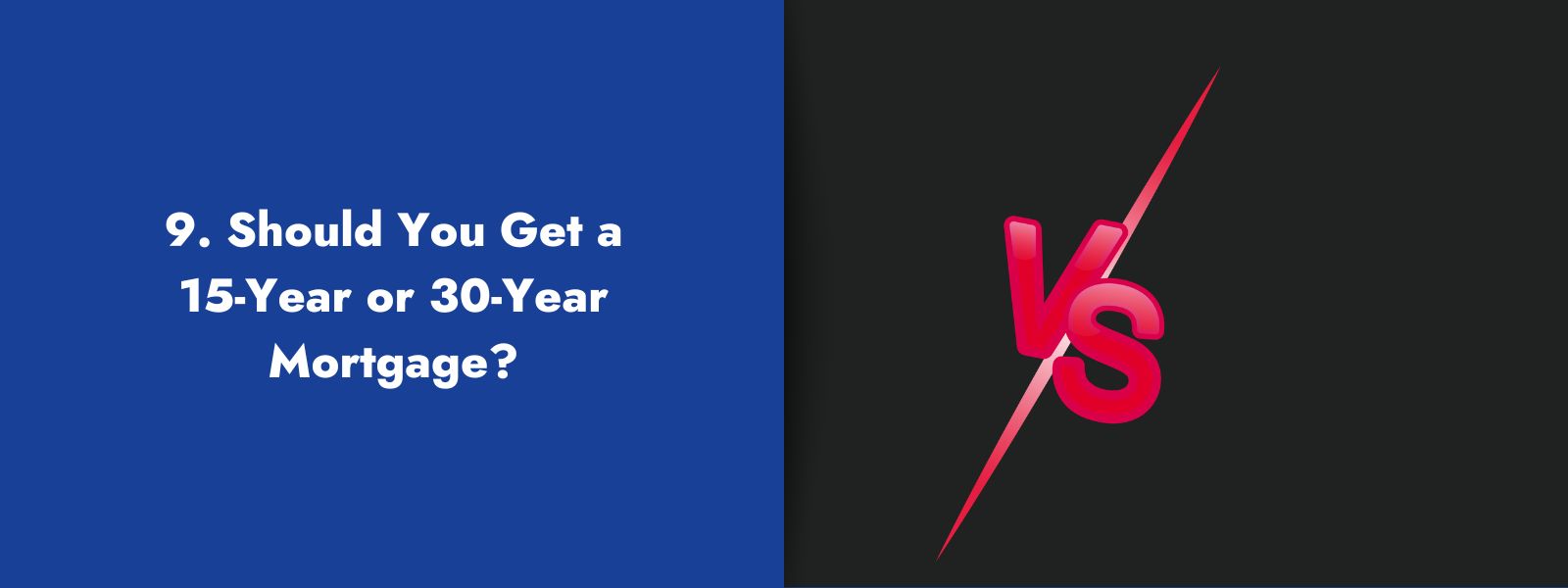
9. Should You Get a 15-Year or 30-Year Mortgage?
The choice between a 15-year vs. 30-year mortgage is a significant decision that will influence your financial commitment over the life of the loan. Each option comes with distinct advantages and considerations.
- 15-year mortgage: A 15-year mortgage typically offers lower interest rates compared to 30-year loans. While this results in higher monthly payments, it also means you’ll pay less in overall interest over the life of the loan. Additionally, you build home equity faster, and the loan is paid off sooner, allowing you to be debt-free sooner.
- 30-year mortgage: A 30-year mortgage provides lower monthly payments, making homeownership more accessible for many buyers. While interest rates may be slightly higher than those for 15-year loans, the lower monthly payments can free up funds for other financial goals, such as investments or retirement savings.
The choice between these options should align with your financial objectives and ability to manage higher monthly payments. Consider factors such as your long-term financial stability, the opportunity cost of tying up funds in larger mortgage payments, and your overall financial goals when making this decision.
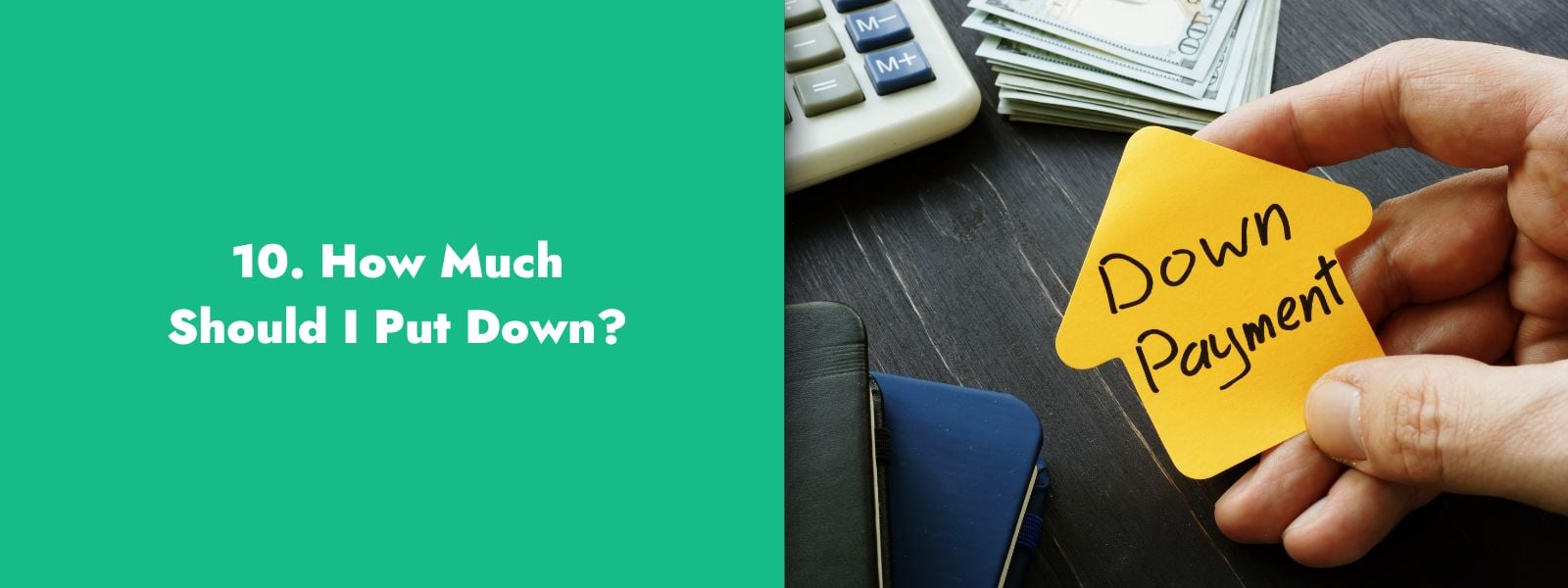
10. How Much Should I Put Down?
The down payment is a critical component of your home purchase, impacting both your loan amount and monthly mortgage payments. While a 20% down payment is often recommended to avoid private mortgage insurance (PMI), the required down payment can vary based on the loan program and your financial situation.
Recent data shows that the average down payment for first-time homebuyers is approximately 6% of the home’s purchase price. However, it’s essential to note that many loan programs, such as FHA loans and VA loans, allow for down payments as low as 3% or even 0%, depending on eligibility criteria.
Deciding how much to put down should consider your financial comfort level, your long-term financial goals, and the specific loan program you qualify for. While a larger down payment reduces your loan amount and monthly payments, it’s crucial to ensure that you have adequate funds remaining for closing costs, emergency savings, and other financial priorities.
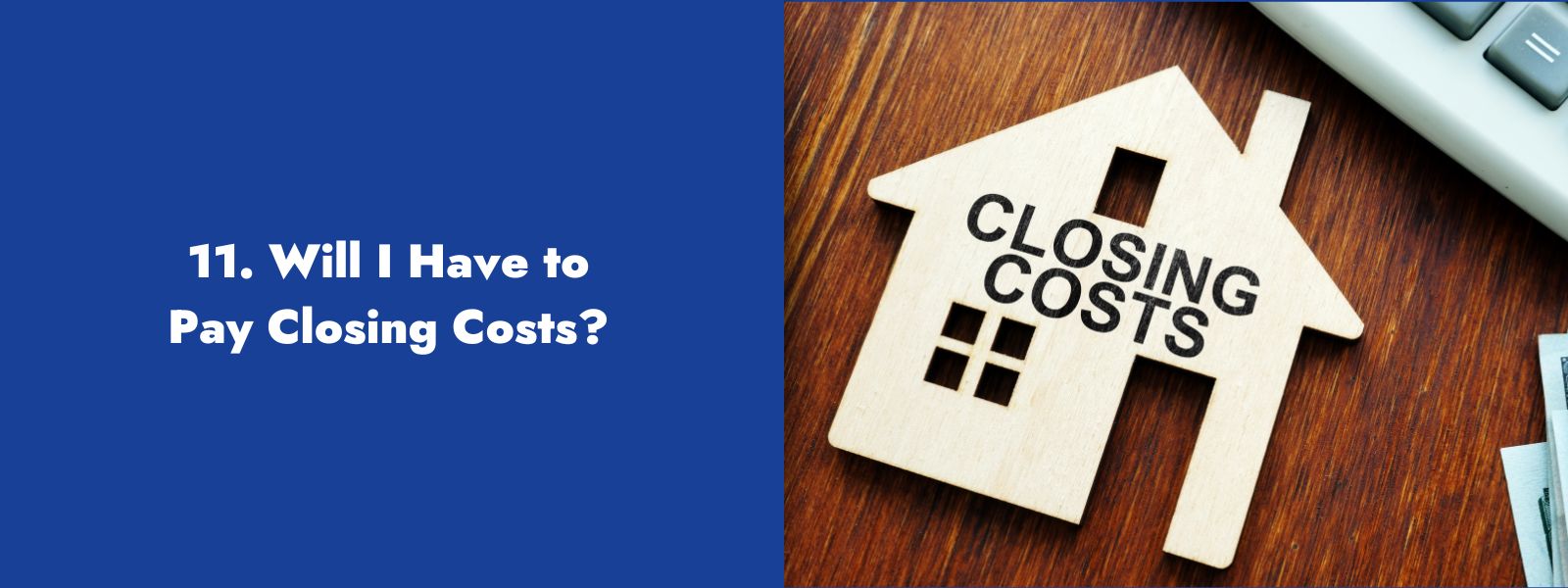
11. Will I Have to Pay Closing Costs?
Closing costs are a standard part of the home buying process and encompass a variety of fees associated with the purchase of a property. These fees typically range from 2% to 5% of the home’s purchase price, making it essential to budget for them when planning your home purchase.
Common closing costs include:
- Appraisal fee: The cost of having a professional appraiser assess the property’s value.
- Title insurance: Insurance to protect against any issues or defects in the property’s title.
- Origination fee: A fee charged by the lender for processing your mortgage application.
- Attorney fees: Legal fees for the review and preparation of closing documents.
- Recording fees: Fees for recording the sale with the local government.
While sellers may cover some closing costs or negotiate to split them, it’s essential to be prepared for these expenses as they can significantly impact your overall budget.

12. When is the Best Time to Buy a Home?
The optimal time to purchase a home can vary depending on location and market conditions. Historically, the spring and summer months have been popular times for homebuying due to favorable weather and increased inventory. However, there are other factors to consider:
- Seasonal variations: While spring and summer typically see more listings, they also tend to have higher competition and potentially higher prices. Winter months can offer better deals due to reduced competition but may have limited inventory.
- Market conditions: Local market conditions play a significant role in determining the best time to buy. Markets with high demand and low supply may require quick action, while buyers may have more negotiating power in a buyer’s market.
- Interest rates: Interest rates fluctuate and can significantly impact your monthly payments. Keep an eye on interest rate trends, as even a slight change can affect your long-term costs.
Ultimately, the best time to buy a home is when it aligns with your personal and financial goals. Be prepared to act when you find the right property, regardless of the season, as the perfect home can appear at any time.
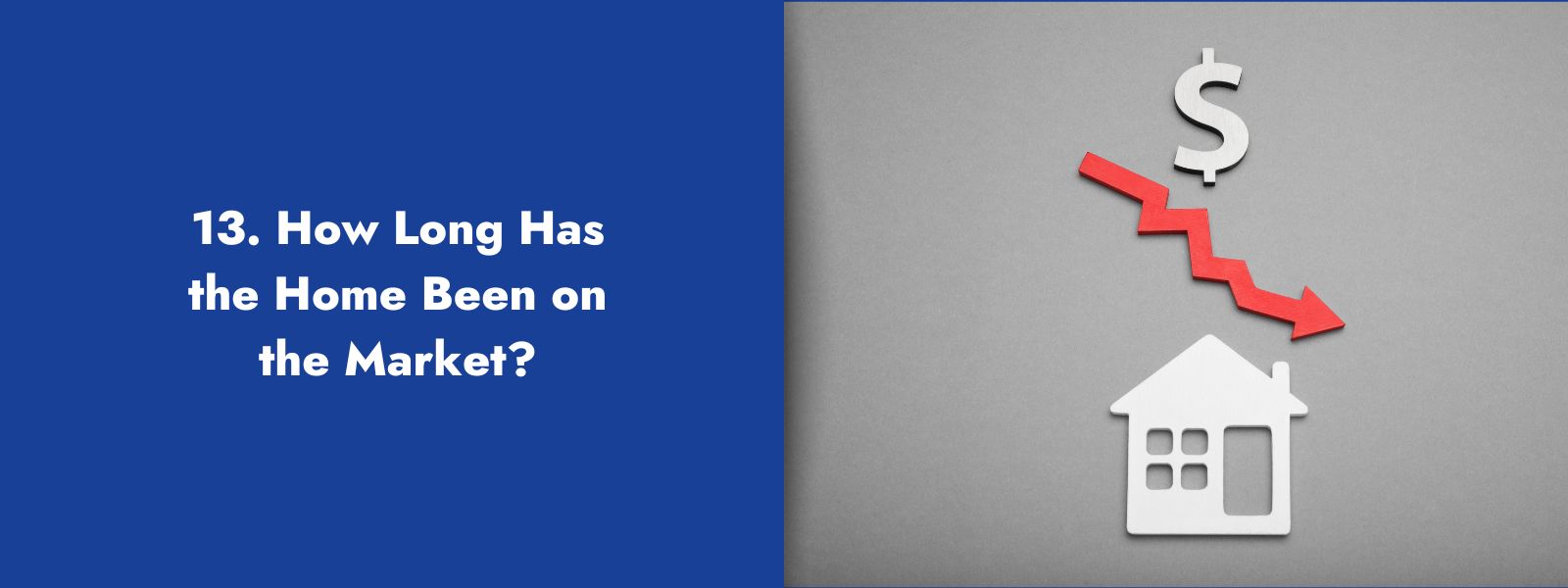
13. How Long Has the Home Been on the Market?
The length of time a home has been on the market can provide valuable insights into its desirability and potential negotiating power. Homes that have been listed for an extended period may signal several factors:
- Potential issues: If a home has been on the market for a long time, it could indicate underlying problems, such as structural issues, a challenging location, or an unrealistic asking price.
- Overpricing: Sellers who initially priced their homes too high may gradually reduce the asking price, creating opportunities for buyers to negotiate a better deal.
- Motivated sellers: Homes with extended market times may have sellers who are more open to negotiations, potentially leading to a favorable purchase price or concessions.
Conversely, a new listing may have more competition among buyers, potentially leading to higher offers. Balancing these factors is essential when deciding how to approach a home that has been on the market for an extended period.
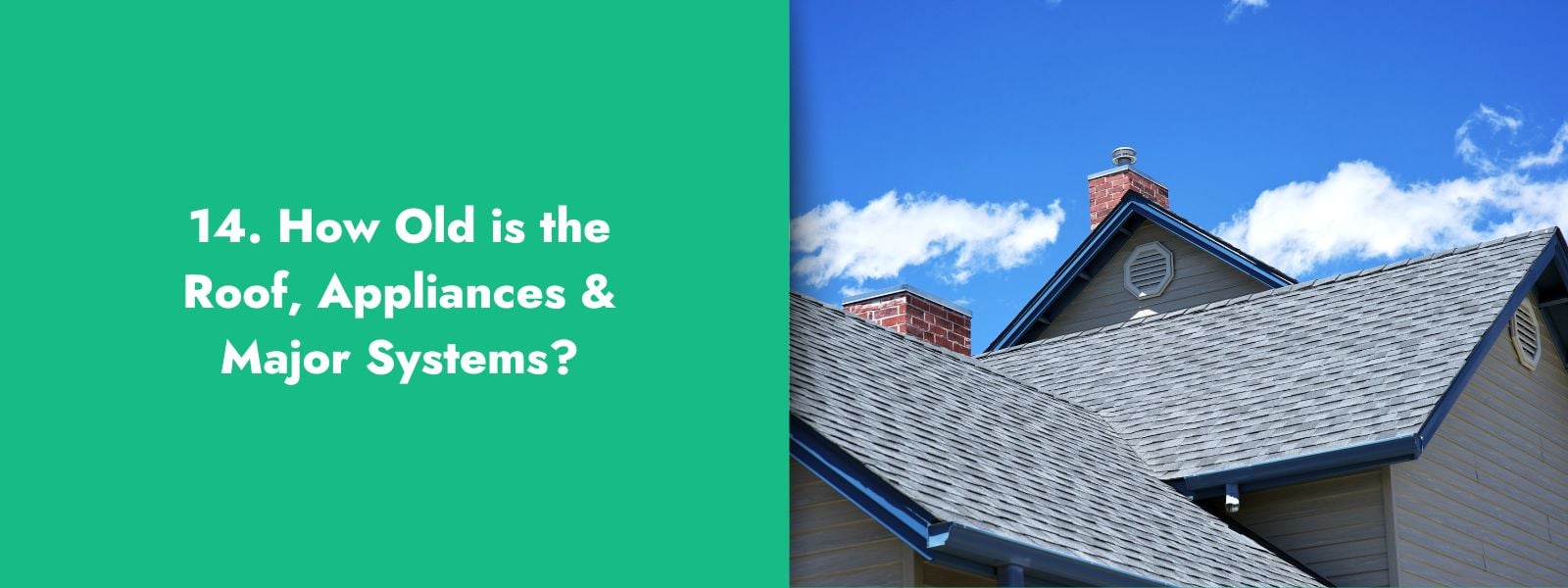
14. How Old is the Roof, Appliances, and Major Systems?
Evaluating the age and condition of a home’s essential components is vital for budgeting and maintenance planning. Understanding the state of the roof, appliances, and major systems can help you make informed decisions about potential repair or replacement costs.
- Roof: Roofs typically have a lifespan of 20 to 30 years, depending on the material. An older roof may require repairs or replacement, which can be a significant expense.
- Appliances: Assessing the age and condition of appliances, such as the HVAC system, water heater, and kitchen appliances, is essential. Older appliances may be less energy-efficient and may require maintenance or replacement.
- Major systems: Plumbing, electrical, and HVAC systems are essential to a home’s functionality. Knowing their age and condition can help you anticipate future maintenance or upgrade costs.
A home inspection is a valuable step in this process, as it provides a comprehensive assessment of the property’s condition and any necessary repairs or replacements.

15. What Happens at a Real Estate Closing?
The real estate closing is the final step in the homebuying process, where you officially take ownership of the property. This complex procedure involves various parties, including the buyer, seller, lender, and title company.
During the closing, you’ll:
- Sign all necessary documents: You’ll review and sign numerous documents, including the mortgage agreement, the deed, and various disclosures.
- Pay closing costs: You’ll settle any remaining closing costs, including fees for services such as the appraisal, title insurance, and attorney fees.
- Transfer ownership: The deed will be transferred from the seller to the buyer, signifying the change of ownership.
- Receive the keys: Once all documents are signed, and funds are disbursed, you’ll receive the keys to your new home.
It’s crucial to review all documents carefully during the closing and ask questions if needed. The closing process can vary by location, so be prepared for a potentially lengthy and paperwork-intensive experience.
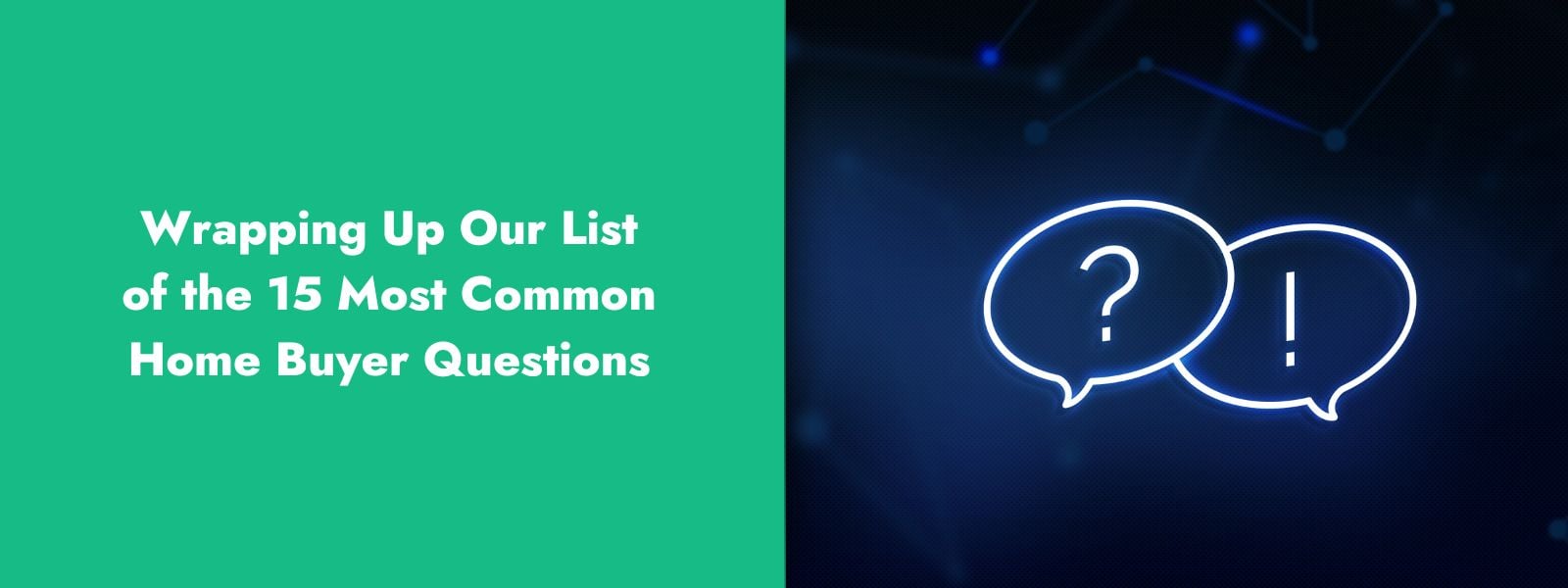
Wrapping Up Our List of 15 Common Home Buyer Questions
Purchasing a home is a milestone achievement that comes with its share of complexities and questions.
We’ve addressed the most common home buyer questions, ensuring that you are well-prepared to navigate the intricate realm of real estate and mortgages.
As you embark on your homebuying journey, remember that each situation is unique.
Take your time, conduct thorough research, and seek advice from professionals when necessary.
Armed with knowledge and confidence, you can transform your homeownership dream into reality, creating a secure and comfortable living environment for you and your family.
To learn more about buying a home or if you have questions that weren’t addressed in this post, give us a call at (817) 923-7321 or contact us.
Helen Painter Group Realtors is here to offer our knowledge and expertise to help facilitate your home-buying journey.
A long-standing and trusted Fort Worth real estate agency, we’ve been serving buyers and sellers since 1958.
With over six decades of success behind us, you’ll surely have peace of mind knowing your best interests are being represented throughout the home-selling process.

